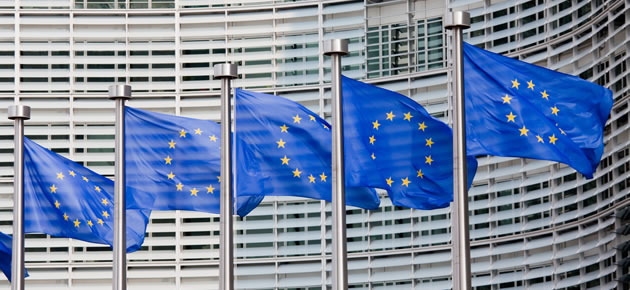Sterling (GBP)
With a lack of UK domestic data on Thursday the Pound remained tainted by the Bank of England’s (BoE) dovish quarterly inflation report and a huge drop in average weekly wage. The aftermath resulted in investors recalibrating their UK interest rate forecasts. Prior to the release of the inflation report traders had speculated that an interest rate hike would take place in November of this year. The speculation was all but snuffed out, however, with Governor Mark Carney’s assertion that policymakers would shift focus from unemployment to the pace of wage growth. Trader expectation has now fallen back to a potential rate hike in February 2015.
This morning has seen the release of the British Gross Domestic Product (GDP) data which could have a positive impact on the Pound having met with the median forecast figure of 0.8%. However, even a better-than-expected GDP growth figure would have had a limited impact on Sterling due to overarching wage growth concerns.
Euro (EUR)
Yesterday’s European GDP data outlined a significant slowdown in the currency bloc’s largest economy. The result of which is the very real prospect of quantitative easing in the Eurozone.
Cooling construction activity and plummeting capital investment has seen Germany post a worrying -0.2% contraction in the second quarter. The data set is especially worrying in that it reveals that the German economy began to decline even before the sanction battle between Russia and the European Union developed. If the sanctions impact upon German exports the possibility of Germany falling back in to recession is a very real one.
In addition to the negative German data Europe’s largest economy, the Eurozone, also suffered from an absence of growth in its second and third most powerful financial players. French output flat lined and Italian economic activity contracted by -0.2%. GDP for the 18-nation bloc fell to 0.0% from 0.2%.
Although the Euro suffered relatively little damage in response to the lacking growth figures; it is possible that the single currency will decline in the near-future as the quantitative easing rhetoric gathers momentum at the European Central Bank. Given Germany’s growth contraction, it is increasingly likely that their opposition to the expansive measures will wane significantly.
US Dollar (USD)
The continued sour sentiment has seen Sterling touch a 4-month low against the US Dollar yesterday.
The atmosphere of doubt concerning BoE rate hike expectation presents the possibility that Traders will continue to push GBP/USD down further as Federal Reserve interest rate speculation increases. Although the BoE is currently expected to begin rate hiking around three months before the Fed, this could easily change if British wage data continues to stutter beneath the rate of inflation and American data continues to produce impressive results. This week has seen the Pound fall through two support levels, and technical trading patterns support the notion that the Pound to US Dollar exchange rate could weaken further in the near term.
Canadian Dollar (CAD)
The Pound to Canadian Dollar exchange rate stooped to a 6-week low yesterday as traders showed little enthusiasm in the restoration of the Pound’s bullish run. Canadian data had little influence on the GBP/CAD exchange rate as BoE rate hike adjustments dominated trader focus.
Australian Dollar (AUD)
The Australian Dollar benefited from the Pound’s mounting issues as GBP/AUD struck another 2-month low. The Pound’s depreciation could accelerate if the British labour market data doesn’t improve significantly. GBP/AUD is currently trading below significant support levels.
New Zealand Dollar (NZD)
With mounting negative sentiment towards Sterling it is unsurprising that GBP/NZD fell to a 3-week low yesterday. The New Zealand Dollar was bolstered by positive domestic retail sales growth of 1.2%, but the Pound may potentially claw back a fraction of its losses having posted a GDP report which met with forecast figures.
South African Rand (ZAR)
Yesterday saw the GBP/ZAR exchange rate soften as negative trader reaction towards Sterling failed to abate.
This morning’s quarter-on-quarter GDP report met with the forecast figure which may aid a slight boost for GBP, but it is unlikely to recover all of its significant losses across the board.



